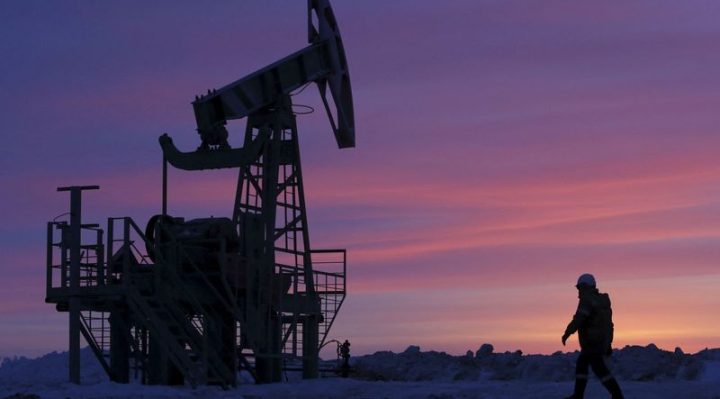Oil prices are surging on President Biden’s announcement of an embargo on Russian energy imports.
The immediate impact was definitive, with the Brent benchmark jumping $5 per barrel after the news broke.
Although the impact on US supply may be limited, prices are soaring because the ban makes it more of a challenge to trade in Russian oil and more likely that other countries may follow suit.
The oil market volatility is an inverse mirror image of the 2020 pandemic collapse, as compounding supply factors push prices higher.
Russia usually exports 4.8 million barrels a day of crude oil to the market, and another 1.4 million bpd is exported via Russia produced in other FSU countries, notably Kazakhstan.
The US only imported 200,000 bpd of crude from Russia last year, and the UK less than half of that.
The US imports nearly 500,000 bpd of petroleum products from Russia, predominantly unfinished heavier oils, into its complex refineries.
This will no longer be possible, and refineries need to source their feedstocks elsewhere.
The market, and US buyers, already started to shun barrels from the Russian region immediately since the outbreak of the war, owing to swift implementation of financial sanctions, restricted commodity financing from lenders or as a result of political decisions to opt away.
The market has reacted as if a Western embargo was in place, at least partly, resulting in a similar cutback in flows as an outright embargo would.
The 4.3 million barrels per day (bpd) of “Western” crude imports from Russia in January 2022 cannot be replaced by other sources of oil supply in a short period of time.
Therefore, oil prices must rise to destroy sufficient demand and incentivize a supply response through higher activity – both of which will happen with a time lag of several months – to rebalance the market at a higher price.
How high oil prices will need to go depends primarily on how much and for how long the market will need to shun export barrels from Russia and whether other buyers, such as China, will step in to increase its purchases of oil from Russia.
OPEC+ holds approximately 4.0 million bpd in spare crude capacity, but there are few signs that the Middle East producers are opening the taps, at least not yet.
With no additional OPEC+ response, the most significant potential oil supply shortage since the 1990 Gulf War (when oil prices doubled) could be upon us.

